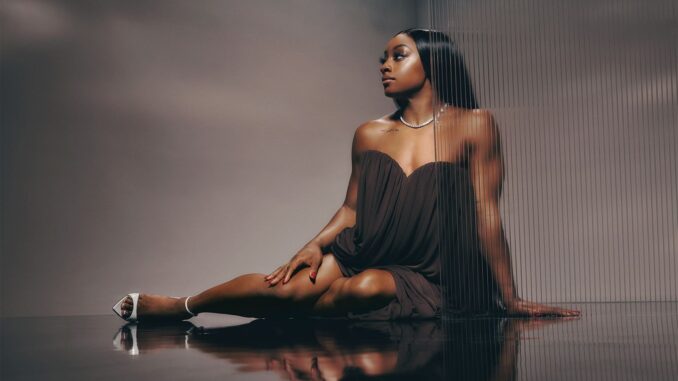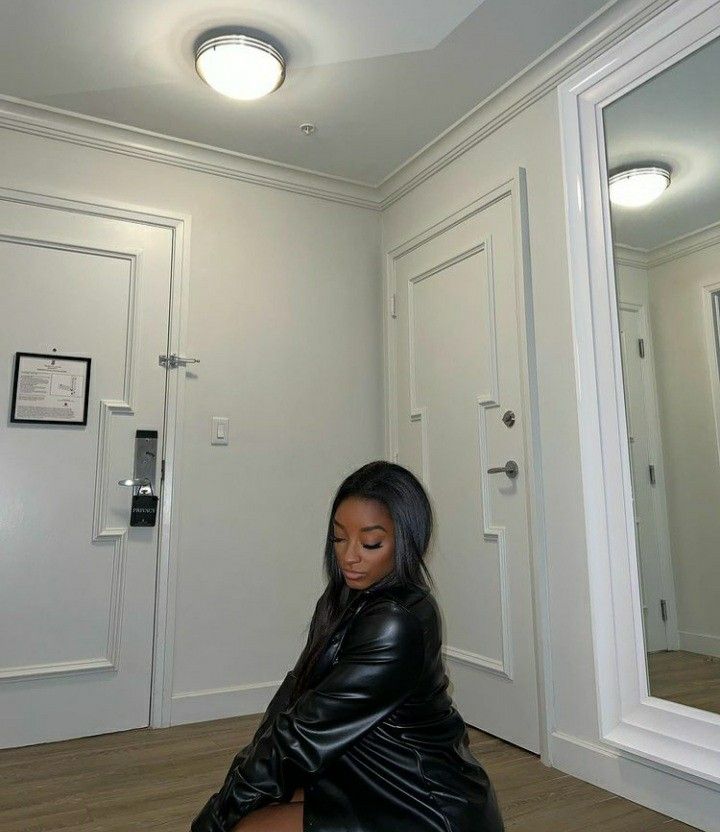
When you hear the name Simone Biles, you think of gold medals, groundbreaking skills and shattering limits. But now, she’s dropped a bombshell: she’s not totally sure she’ll compete in the 2028 2028 Summer Olympics in Los Angeles. Yes, you read that right. In a world where athletes often chase one more Olympic cycle, Simone is asking the bigger question: What’s next for ME? Let’s dive in, unpack where she stands, why it matters—and what it could mean for the sport of gymnastics.
Simone Biles’ Current Position on LA 2028
The Public Statement
In an interview with French daily L’Equipe, Biles revealed she has not yet committed to competing in LA 2028. She said: “I’ll be there, whether on the apparatus or in the stands… I still haven’t decided.”
Yet at the same time, in other media she isn’t ruling it out. She called it a blessing that the Games are coming back to the US.
Why the Ambiguity?
Physical Toll and Aging Body
Biles admitted that after the 2024 Paris Games, her body “literally collapsed” and she was sick for 10 days. She pointed out that 2028 is still years away—and by then she’ll be in her thirties, “an age when most elite gymnasts have already retired.”
Shifting Priorities
She also spoke about wanting to live life: enjoy time with her husband, support him, enjoy being a woman outside of the sport. “I’ve accomplished so much in my sport. For me to come back, it would really have to excite me.”
The Rigors of Elite Gymnastics
She emphasised that preparing for the Olympics is not just a year—it’s a full four-year cycle of intense training, sacrifice and toll on mind & body.
Desire to Stay Involved Anyway
Even if she doesn’t compete, she says she will be present at the LA Games in some capacity. That could mean mentor, spectator or some role we don’t yet know.
Why This Matters—Not Just for Biles, But for Gymnastics
Her Legacy & the Gap If She Doesn’t Return
As the most decorated gymnast in history (with her record-setting number of World and Olympic medals) she has shaped the sport. If she chooses not to compete in 2028, the gymnastics world will have to ask: who steps up?
Spotlight On Mental & Physical Health in Elite Sports
Her transparency about burnout, aging and the mental burden sends a strong message: even champions are human. This opens the door for conversations about athlete wellness, lifespan and career planning.
Implications for Team USA & the 2028 Games
The US Women’s Gymnastics team has become accustomed to having Biles in the lineup. If she isn’t there in 2028, it may shift team dynamics, selection strategy, media expectations—and give fresh faces a chance to shine.
The Road to 2028—What Would It Take for Her Return?
Physical Readiness
To compete at 2028 level, she would need to maintain elite physical condition, recover from wear-and-tear, avoid major injury. The fact she experienced health issues post-Paris signals she will be cautious.
Mental Motivation
She has openly stated: “For me to come back, it would really have to excite me.” Meaning: if the goal is just another medal, maybe not enough. But if there is a meaningful impetus—maybe a new challenge—then yes.
Support System & Life Balance
Balancing life outside of gymnastics (family, personal growth, time off) with the demands of training may be key. She is older, more mature, and wants more than just “compete to win”.
Strategic Planning
From recovery scheduling, training cycles, possibly changing roles (e.g., part-time competitor or showcase athlete) – she might map a unique path if she chooses to aim for 2028.
What Are the Possible Scenarios?
Scenario One – Full Return as Competitor
She commits fully, trains for four years, shows up in LA on the mat competing for medals. It would be a narrative of comeback and dominance.
Scenario Two – Partial Role / Showcase
She attends and performs but maybe not in all events—or participates in a reduced role or as part of an exhibition, while mentoring younger athletes.
Scenario Three – Retirement from Competition, Role as Leader/Advocate
She attends the Games but does not compete, becoming a leader, mentor or spokesperson for gymnastics, mental health and athlete welfare.
Scenario Four – Two-Pronged: Compete in Another Sport / New Chapter
While less likely, she has hinted at shifting priorities. She may focus on other goals and step away from elite gymnastics competition for good.
What the Media and Fans Should Watch
Updates on Her Physical Fitness & Training
Monitor how she is recovering, what her training regimen looks like, whether she enters major competitions in the interim.
Public Statements & Interviews
Her precise language will matter—words like “decided”, “return”, “excited” vs “undecided”, “we’ll see” will signal direction.
Involvement in Gymnastics Outside Competition
If she takes on mentoring, commentary, ambassador roles, or training younger athletes, that may hint she is shifting focus.
How Team USA Prepares
The U.S. gymnastics federation and team may start planning with or without her in mind. Their choices may reflect her likely path.

Why Some Fans Might Be Disappointed—and Why It’s Understandable
The Desire to See a Legendary Comeback
Many want to witness Biles back in competition, going for another gold, rewriting history. There’s a romance to it.
The Reality Check—Aging, Injuries, Life After Gymnastics
Elite gymnastics is brutal. It’s normal she’s questioning whether to keep going. The fact she is thoughtful about it is a sign of maturity.
The Impact on the Sport’s Narrative
A Biles absence would shift storylines from “how many more does she win?” to “who is next?” That can feel like a loss—but also an evolution.
The Bigger Picture – Gymnastics, Athlete Longevity & Beyond
How Long Can Elite Gymnasts Stay at Peak?
Historically, female gymnasts peak younger; to compete at an Olympics in your 30s is rare. Biles is confronting that reality now.
Mental Health as a Core Part of the Conversation
Her openness about her mental state, her body’s wear and tear, and life outside competition highlights a trend: athletes are more human than ever.
Transitioning Out of Elite Sport
Regardless of 2028, this moment may mark a transition phase: from competitor to icon, mentor, advocate. The way she handles it may become a blueprint.
What’s Next for US Gymnastics?
With or without Biles in 2028, the US women’s team will need to groom new talents, build new stars, and perhaps redefine what success looks like post-Biles era.
Why the 2028 Los Angeles Olympic Games Matter in This Context
Home Turf Advantage
Competing on home soil is rare and special for U.S. athletes. The fact the Olympics are returning to the U.S. in 2028 adds extra weight to the decision.
Legacy and Media Attention
If Biles returns, it becomes a story of homecoming, redemption, extended legacy. If she doesn’t, it becomes a story of passing the torch.
Influence on Youth and Future Gymnasts
Her decision will resonate with younger athletes: either with the inspiration of “she came back” or the message “there is life and value beyond the gold medals”.
My Thoughts: What I Expect
In my view, given how candid she’s been, I suspect that Biles will not commit to a full competitive return for 2028—unless she finds a cause or format that really ignites her passion (e.g., a new challenge). My guess is: she will attend the Games, be deeply involved in gymnastics, maybe mentor or perform in a special way—and the world will see her evolve into a legacy figure. That said, never say never: if an opportunity emerges that excites her, she may say yes.
Conclusion
Simone Biles’s uncertain stance on competing in the 2028 Los Angeles Olympics offers far more than a mere yes or no. It carries with it questions about athlete longevity, the evolution of elite sports, mental and physical wellness, and how champions decide when to leap forward or gracefully step aside. Whether she returns as a competitor, transitions into a role of leadership, or charts a new path entirely—we’ll be watching and inspired. Because in the end, her story isn’t just about medals—it’s about purpose.